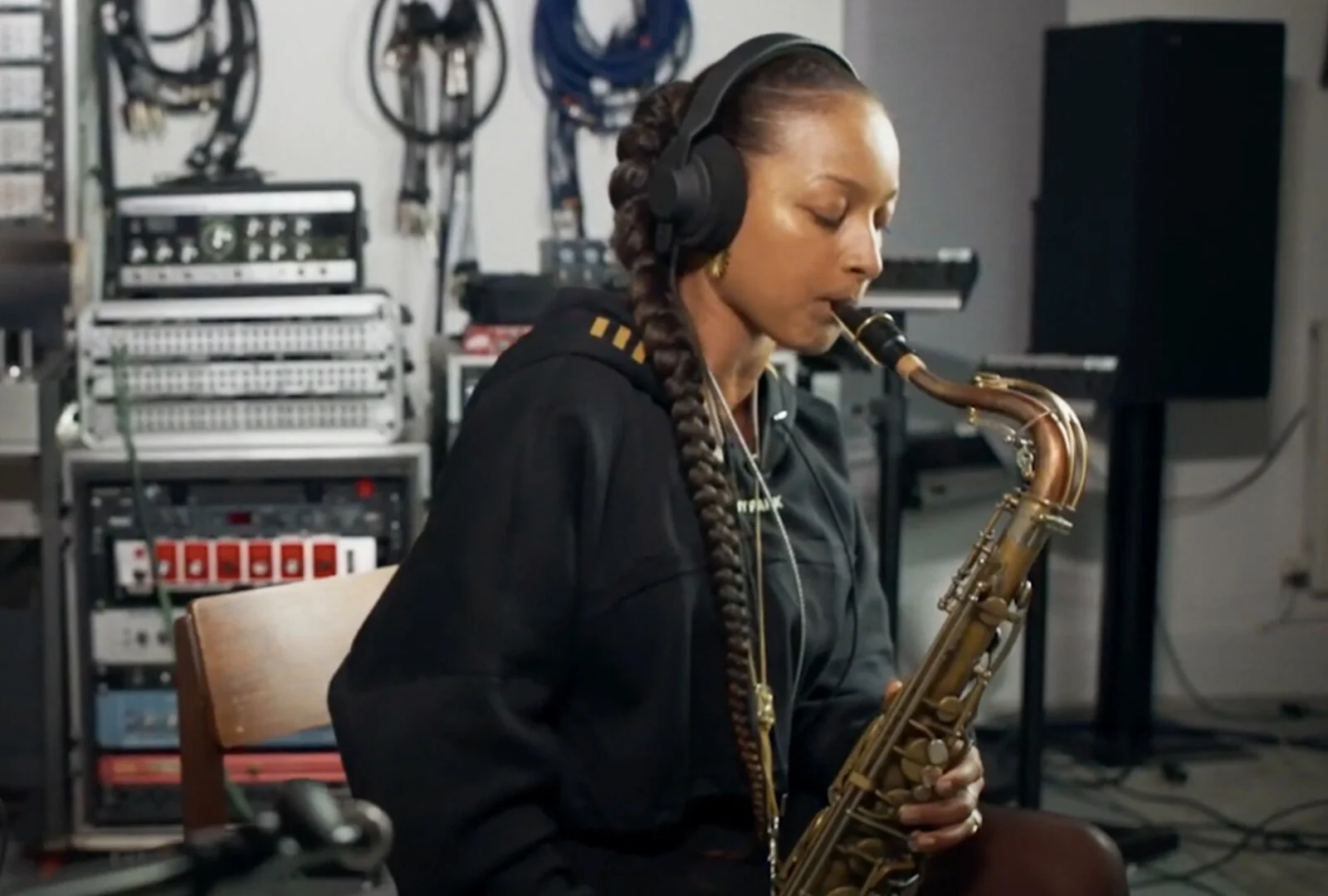
Deep-Dive: UK Jazz Scene
The UK jazz scene in 2025 is experiencing a true renaissance—dynamic, eclectic, and culturally influential, with London at its heart but with vibrant outposts nationwide. This deep dive explores the scene’s history, current stars, emerging talent, key festivals, venues, and the genres and influences shaping its sound.
The Historical Backbone
Jazz took root in the UK in the 1920s, rapidly becoming entwined with the country’s cultural fabric through broadcasts, records, and visiting American musicians—notably Louis Armstrong and Duke Ellington in the 1930s. The pioneering Club Eleven, formed in 1948, and Ronnie Scott’s Jazz Club, opened in 1959, became hubs for both local and international talent. The post-war Windrush generation brought Caribbean musical traditions—reggae, dub, calypso—and further enriched the UK’s jazz DNA. Post-1970s, figures like Courtney Pine, John McLaughlin, and Evan Parker helped shape a distinct British jazz identity.nationaljazzarchive+4
<iframe width="916" height="515" src="https://www.youtube.com/embed/DTIZikaOTDE?list=RDDTIZikaOTDE" title="Nubya Garcia: Tiny Desk (Home) Concert" frameborder="0" allow="accelerometer; autoplay; clipboard-write; encrypted-media; gyroscope; picture-in-picture; web-share" referrerpolicy="strict-origin-when-cross-origin" allowfullscreen></iframe>
The Modern Renaissance
Since 2015, a new wave of British jazz has crossed over into the mainstream, propelled by a generation of artists who blend the genre with UK hip-hop, grime, Afrobeat, broken beat, and electronic music. This sonic hybridity reflects the multicultural cities these musicians call home, particularly London, Leeds, Manchester, and Glasgow. The scene is collaborative, inclusive, and often politically conscious, with artists like Shabaka Hutchings using music as a form of activism.ukjazznews+3
Key Artists & Recent Releases
Artist/Band
Notable Work/Album
Style/Notes
Nubya Garcia
Source (2020)
Tenor saxophonist—fuses jazz, Afrobeat, and African diasporic soundsthebluesproject+1.
Moses Boyd
Dark Matter (2020)
Drummer/producer—jazz, grime, Afrobeat, electronica hybridbestofjazz.
Ezra Collective
Where I’m Meant to Be (2022)
Quintet—lively, party-starting jazz with mainstream appealbestofjazz.
Yussef Kamaal/Dayes
Black Focus (2016) / Black Classical Music (2023)
Jazz fusion, broken beat, electronic, global influences—Dayes won an Ivor Novellobestofjazz.
Sons of Kemet
Your Queen Is A Reptile (2018)
Afro-Caribbean, funk, dub, politically charged—led by Shabaka Hutchingsbestofjazz.
Laura Jurd/Dinosaur
Together, As One (2016)
Eclectic, genre-bending jazz-rock—Mercury Prize-nominatedbestofjazz.
Matthew Halsall
On the Go (2011)
Spiritual, rain-streaked jazz from Manchesterbestofjazz.
Shabaka
Perceive Its Beauty, Acknowledge Its Grace (2024)
Flute-focused, meditative, global instrumentationbestofjazz.
Other Notable Names: Ashley Henry (piano), Xhosa Cole (saxophone), Kokoroko (afrobeat/Fela Kuti-inspired octet), Joe Armon-Jones (keys/synth), Alfa Mist (piano/R&B), Tom Misch (guitar/neo-soul), Binker & Moses (sax/drums duo).thebluesproject+2
Emerging Talent
Emerging artists are being nurtured by programs like Jazz North’s Northern Line, which spotlights genre-bending acts such as The Exu (Leeds), Ferg’s Imaginary Big Band (Leeds), Amy Thatcher & Francesca Knowles (Newcastle), Ellen Beth Abdi (Manchester), and Ex-Easter Island Head (Liverpool). Across the UK, collectives and jam nights (e.g., Steam Down in London) foster local scenes and new collaborations.anothermanmag+1
Festivals: The Pulse of the Scene
The UK jazz festival calendar is bustling, with events spanning jazz, soul, funk, and beyond:everythingjazz+1
Cheltenham Jazz Festival (30 April–5 May 2025): Big international names and UK stars, with a strong focus on new talent.
Manchester Jazz Festival (16–25 May 2025): Celebrating its 30th year, it’s a platform for local and international artists.
Leeds Jazz Festival (22–27 May 2025): Spotlight on local acts like Awen Ensemble and Nova.Sol.
Glasgow Jazz Festival (18–22 June 2025): Scotland’s longest-running, with a mix of global and homegrown talent.
Love Supreme Jazz Festival (4–6 July 2025): Jazz, soul, and R&B in East Sussex, with a dedicated “New Generation Jazz” tent.
Brecon Jazz (8–10 August 2025): Grassroots festival in Wales, featuring a mix of global and rising stars.
We Out Here (14–17 August 2025): Founded by Gilles Peterson, this festival celebrates the intersection of jazz, club culture, and global sounds.
EFG London Jazz Festival (14–23 November 2025): One of the world’s premier jazz events, with ten days of performances across the capital.efglondonjazzfestival
Venues & Clubs
London’s clubs remain the scene’s backbone, but jazz thrives across the UK:toulouselautrec+2
Ronnie Scott’s (Soho): Legendary since 1959, hosting both icons and newcomers.visitlondon+1
606 Club (Chelsea): Intimate, British artists only, seven nights a week.toulouselautrec+1
Vortex Jazz Club (Dalston): Experimental and avant-garde.visitlondon+1
The Jazz Cafe (Camden): Soul, funk, and jazz—vibrant and mainstream.jazzfuel+1
Matt & Phred’s (Manchester): A Northern institution with a lively weekly program.
The Jazz Bar (Edinburgh), Band on the Wall (Manchester), Hampstead Jazz Club (London), Oliver’s Jazz Bar (Greenwich) are also key hubs for live music.ohjazz+2
Influences, Genres & The New UK Sound
Today’s UK jazz draws on a vast palette: traditional jazz, Afrobeat, highlife, grime, jungle, hip-hop, dub, electronic, and neo-soul. The music is often dancefloor-oriented, with a DIY ethos that mirrors London’s club culture. Albums like We Out Here (curated by Shabaka Hutchings) and Black Focus (Yussef Kamaal) exemplify this genre-fluid approach. The scene is also notable for its socially conscious lyrics and themes, reflecting the multicultural, urban landscape of modern Britain.bestofjazz+4
Looking Ahead
The UK jazz scene is in its most exciting phase yet—young, diverse, and unafraid to experiment. It’s a scene where tradition and innovation coexist, and where the next generation is as likely to cite Fela Kuti or J Dilla as Coltrane or Davis. With robust festivals, supportive venues, and a constant stream of new talent, British jazz is not just surviving—it’s setting the global agenda.theshfl+1
In summary: The UK jazz scene is a microcosm of British society—cosmopolitan, inventive, and constantly evolving. From smoky basements to festival stages, its artists are redefining what jazz can be in the 21st century, and the world is listening.

